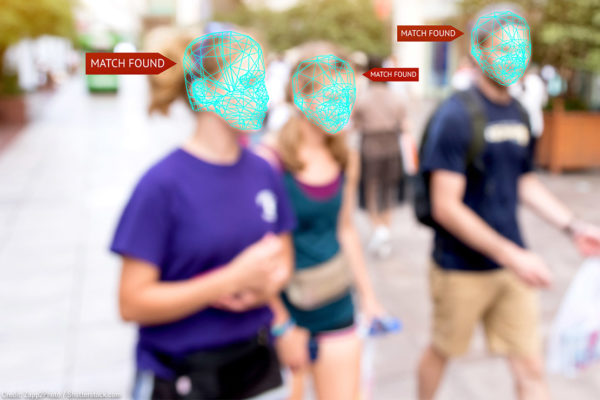Massachusetts
Rodas-Mazariegos et al. v. Moniz et al.
On March 25, 2020, the ACLU National Prison Project, ACLU Immigrants Rights Project, ACLU of Massachusetts, and the law firms of Demissie & Church and Graves & Doyle filed Rodas-Mazariegos et al v. Moniz et al in the District of Massachusetts, on behalf of immigrants detained at the Plymouth County Correctional Facility in Plymouth, Massachusetts. The filing followed news that a federal judge ordered the release of a detained class member in the ACLU’s Calderon v. Wolf suit in Plymouth County, citing the “extraordinary circumstances” of the COVID-19 pandemic.
View Case
All Cases
11 Massachusetts Cases

Massachusetts
Oct 2019
Privacy & Technology
ACLU v. Department of Justice - FOIA Lawsuit Demanding Information About Facial Recognition Technology
Explore case
Massachusetts
Oct 2019

Privacy & Technology
ACLU v. Department of Justice - FOIA Lawsuit Demanding Information About Facial Recognition Technology

Massachusetts
Jul 2017
Voting Rights
Chelsea Collaborative v. Galvin
The American Civil Liberties Union, the ACLU of Massachussetts, and others filed a lawsuit in Massachussetts challenging the state’s requirement that eligible voters register 20 days before an election. The arbitrary deadline interferes with the fundamental right to vote and unnecessarily disenfranchises voters.
Explore case
Massachusetts
Jul 2017

Voting Rights
Chelsea Collaborative v. Galvin
The American Civil Liberties Union, the ACLU of Massachussetts, and others filed a lawsuit in Massachussetts challenging the state’s requirement that eligible voters register 20 days before an election. The arbitrary deadline interferes with the fundamental right to vote and unnecessarily disenfranchises voters.

Massachusetts
Jan 2017
Smart Justice
Criminal Law Reform
Bridgeman et. al v. District Attorney for Suffolk County et. al
Update: On January 18, 2017, the Massachusetts Supreme Court directed district attorneys to dismiss thousands of drug offense cases that were tainted by the misconduct of chemist Annie Dookhan. Prosecutors must produce a list of all drug convictions they plan to dismiss, and also produce a list of cases that they wish to re-prosecute, both within 90 days. They will be permitted to re-prosecute cases only if they certify they can do so on the basis of untainted evidence. The people hurt by Annie Dookhan’s actions deserve justice from the prosecutors who have the power to right thousands of grave wrongs by dismissing these cases.
Explore case
Massachusetts
Jan 2017

Smart Justice
Criminal Law Reform
Bridgeman et. al v. District Attorney for Suffolk County et. al
Update: On January 18, 2017, the Massachusetts Supreme Court directed district attorneys to dismiss thousands of drug offense cases that were tainted by the misconduct of chemist Annie Dookhan. Prosecutors must produce a list of all drug convictions they plan to dismiss, and also produce a list of cases that they wish to re-prosecute, both within 90 days. They will be permitted to re-prosecute cases only if they certify they can do so on the basis of untainted evidence. The people hurt by Annie Dookhan’s actions deserve justice from the prosecutors who have the power to right thousands of grave wrongs by dismissing these cases.

Massachusetts
Dec 2015
Immigrants' Rights
Gordon v. Johnson and CASTAĂ‘EDA v. Souza
In Gordon v. Johnson, the ACLU and its partners obtained a class action ruling making some 150 Massachusetts detainees a year eligible for individual bond hearings. Rather than being held in “mandatory” immigration detention, without a bond hearing, these noncitizens may now obtain their release if an immigration judge concludes that they do not pose a danger or flight risk. Since May 2014, the federal district court’s ruling has allowed more than 100 noncitizens to be released from mandatory detention and remain with their families while their immigration cases are resolved.
Explore case
Massachusetts
Dec 2015

Immigrants' Rights
Gordon v. Johnson and CASTAĂ‘EDA v. Souza
In Gordon v. Johnson, the ACLU and its partners obtained a class action ruling making some 150 Massachusetts detainees a year eligible for individual bond hearings. Rather than being held in “mandatory” immigration detention, without a bond hearing, these noncitizens may now obtain their release if an immigration judge concludes that they do not pose a danger or flight risk. Since May 2014, the federal district court’s ruling has allowed more than 100 noncitizens to be released from mandatory detention and remain with their families while their immigration cases are resolved.
